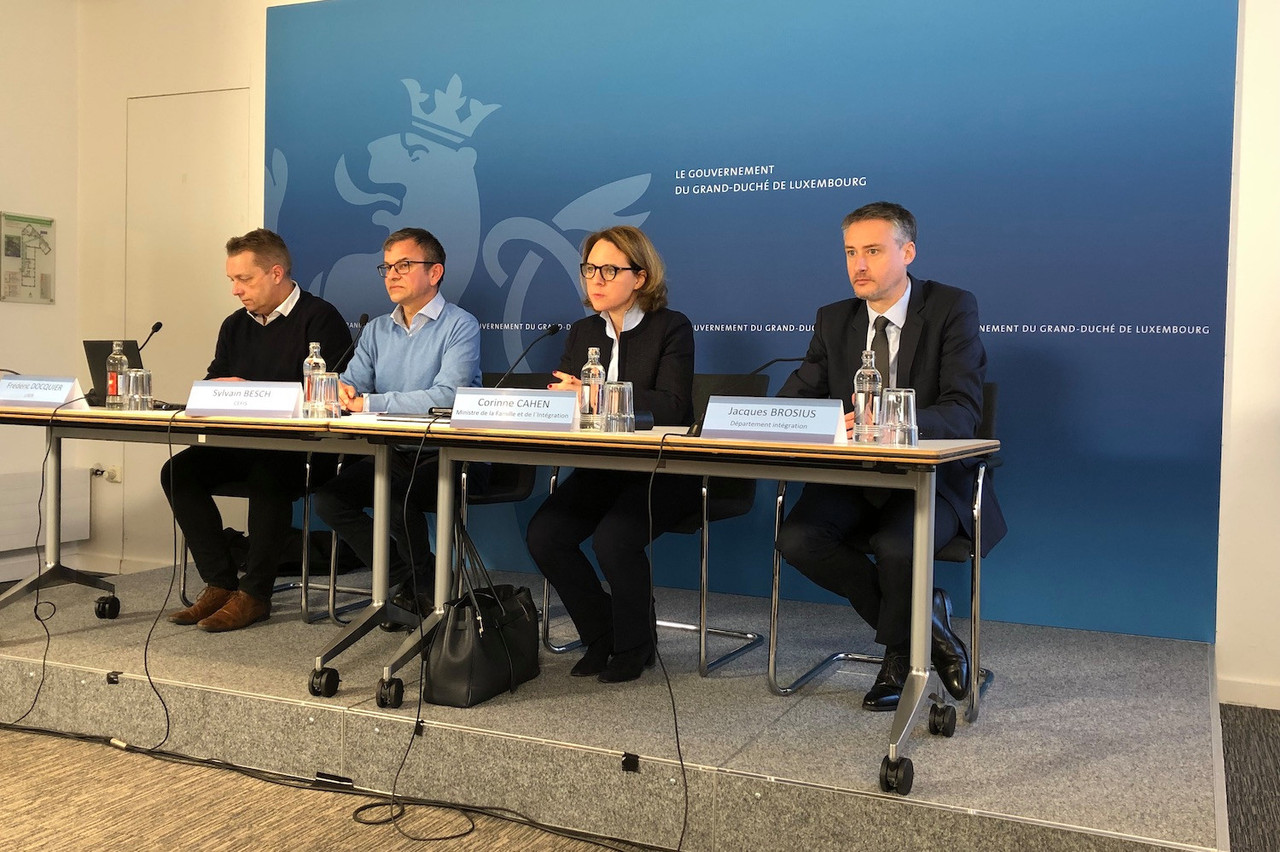Parliament in the wake of the Black Lives Matter protests in 2020 had demanded the government carry out a study to improve the understanding of racism in the country in different sectors, including housing, the workplace, education and healthcare.
“People feel discriminated and we wanted to objectify the discussion,” said family and integration minister Corinne Cahen (DP) during a press conference on Tuesday, adding that the survey would help policymakers “see where the problems are.”
A snapshot of the , for example, shows that one in ten people don’t want to live next to people from a particular ethno-racial background. Just over 15% of respondents said that racist reactions are sometimes justified and 4.3% said they believe that some races are superior to others.
“Ideological racism is relatively rare,” said Frédréric Docqiuer of the Luxembourg Institute of Socio-Economic Research (Liser), which conducted the survey together with intercultural institute Cefis. Instead, there has been a “transformation of direct and aggressive racism into micro-aggressions in daily life,” he said.
Around half of respondents said they had been discriminated against when looking for housing, compared to 44.5% when job hunting. Just under half of victims meanwhile said they felt attacked because of the colour of their skin, other cultural symbols or because they didn’t speak Luxembourgish.
“Invisible” phenomenon
An in-depth series of 20 to 30 interviews is ongoing to determine more concretely how racism and discrimination is expressed as many victims don’t report their experiences, because they don’t know where to go or don’t believe that reporting incidents will make a difference. “The phenomenon remains invisible,” said Docquier.
Around a third of respondents said they think racism has increased in the last five years. More than 38% of black respondents said they think they will become a victim of racism in future.
Around 3,000 people responded to the survey, which aimed at gathering information from a representative sample of the population but with minority groups overrepresented to capture their perceptions.
For example, 17.3% of respondents overall said they had been victim of discrimination at work. But this number rose to 38% among black respondents, 28% among Muslims and 33% among the Portuguese community. That compares to just 13% of other EU foreign nationals.
The research also shows a lack of understanding and awareness, strategy and training among public administrations on racism and discrimination. In a first step, Cahen said that commune employees will be offered diversity and non-discrimination training.
No racism action plan
But there won’t be a national action plan against racism. Parliament in 2020 had called on the government to develop such a plan based on the results of the study presented on Tuesday. But Cahen said that there already is a national integration plan and that there would not be another document to specifically address racism.
The minister said that the government would continue working with the researchers without specifying any projects. “Only analysing more and nothing happens… that’s useless.” The ministry has planned meetings with employer union UEL to discuss the results of the study and possible actions. It is also investigating other measures, such as real estate agencies signing a pledge as part of their licence not to discriminate against minorities.
“The study goes far beyond the remit of the family and integration ministry,” said Cahen.
There is a clear need for action on the side of people who participated in the survey, with more than two thirds saying that new measures to combat racism and discrimination are necessary. Just over half said that current measures to identify and punish discrimination are insufficient.
This rate was substantially higher at around 80% among black, Muslim and Portuguese respondents.
The workplace, education and housing are seen as three priority areas, with measures to support integration, harsher sanctions and awareness campaigns seen as possible ways forward.
The researchers who worked on the study recommended five main areas of action: awareness-raising, strengthening the legal framework, working with institutions, improving the knowledge base and data on racism and discrimination, and improving access to reporting for victims.
“We need to spring into action,” Cahen said.
